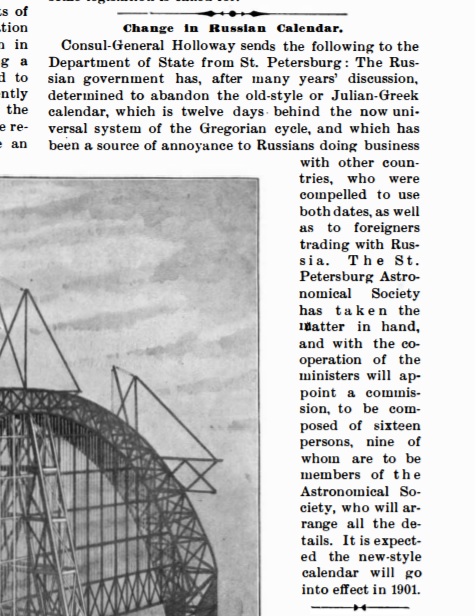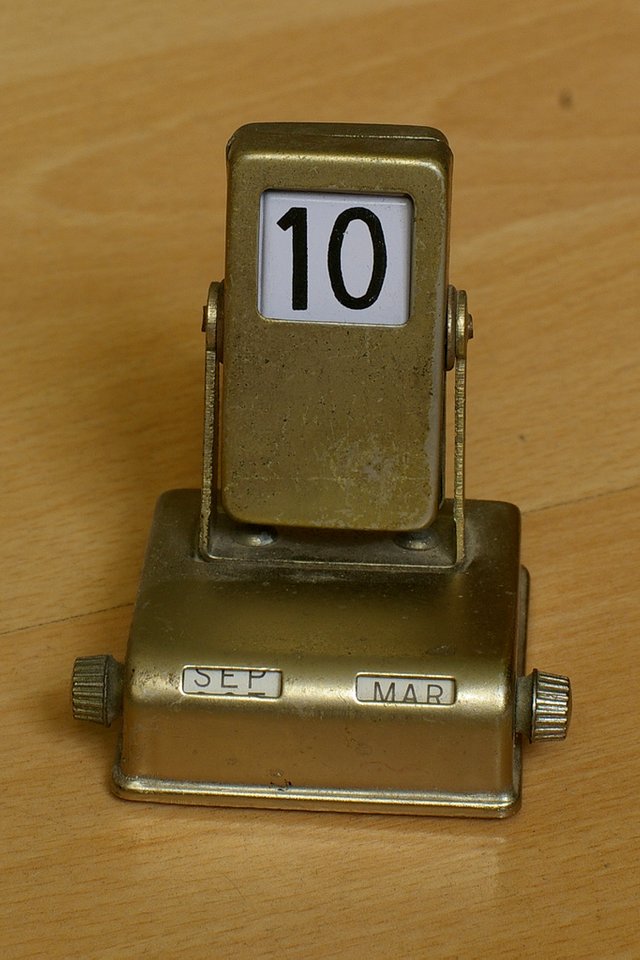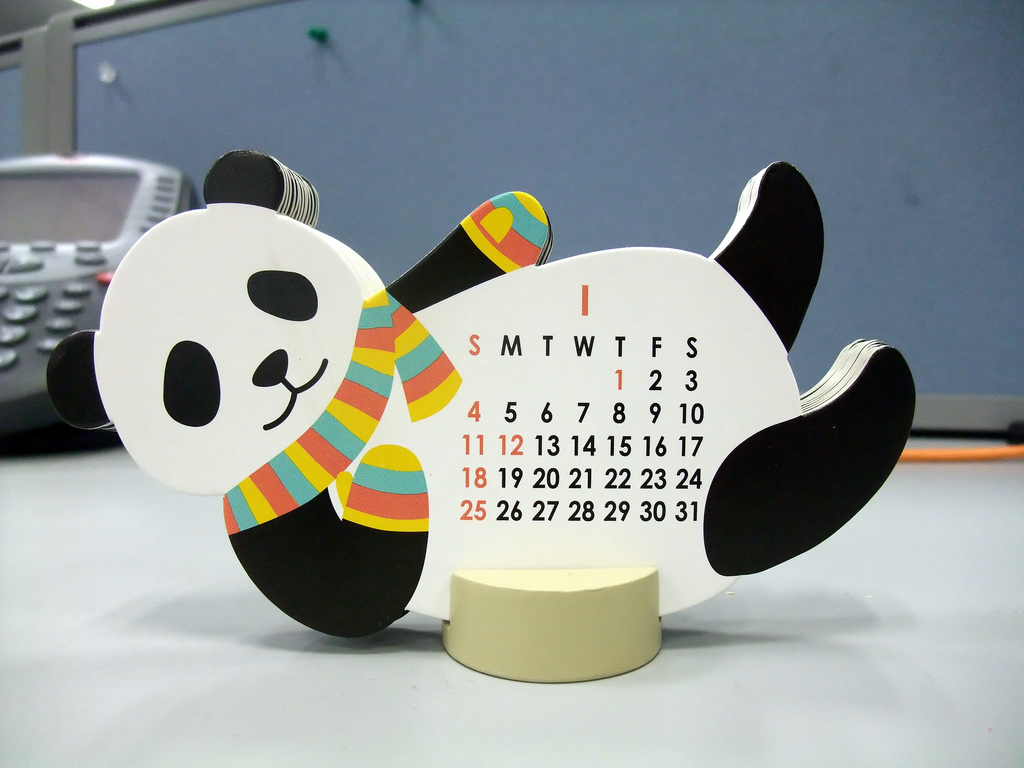The Philadelphia History Initiative (@phillyhistory) has had a bunch of us exploring the events of 1918. Today I turn to what didn't happen that year: thirteen days in February. Or at least they didn't happen in Russia.
In the wake of the Russian revolutions (in March and October 1917) the young Russian Soviet Federative Socialist Republic shifted from the Julian calendar to the Gregorian calendar. The switch meant jumping directly from February 1 to February 14.

Interestingly, the change had been slated for nearly two decades before. Source: "Change in Russian Calendar," Scientific American, Vol. 81, No. 4 (July 22, 1899), p. 53.
The Gregorian calendar was created in 1582 and immediately adopted by much of the Catholic world, only being adopted by some of the German states in the 17th century, by Britain in the 18th, and by Egypt and Japan in the 19th.
Why Make a New Calendar?
The Julian calendar was very similar to what we use now, but its slight variation from the time it takes the Earth to make one orbit of the sun caused Christian holidays, calculated using the equinoxes and the solstices, to shift from the months in which they had traditionally been celebrated. The Gregorian calendar was created in order to more accurately match the solar year and began with a subtraction of 10 days to match Easter to March 21st. While the Julian calendar included leap years every four years, the Gregorian calendar eliminated those leap days when the year is divisible by 100 but not those divisible by 400.[1]

Just a cool-looking calendar I found of Flickr. Photo by plenty.r. used under CC BY-SA 2.0
Between 1582 and 1918, there were three years (1700, 1800, 1900) which would have been leap years under the Julian calendar, but weren't under the Gregorian. Add those to the initially-subtracted ten days and by the time the Russians adopted the calendar, there were thirteen days to subtract.
Interestingly, the Julian calendar inserted a leap day, not as we do today as February 29, but as a doubled February 24th and the Gregorian followed suit initially.[2] Most of the monkeying around with calendars (leap years, stealing days away to make July longer) happened in February because the Roman year started on March 1, or so they say.

Photo of panda calendar by yoppy used under CC BY 2.0
Where did those 13 days go?
Through July of 1918, Russians included the Julian date in parentheses behind the Gregorian date when it was written down, but it must have been confusing. Think about how often there is confusion around Daylight Savings Time, which adjusts twice a year.
How would you adjust to the "loss" of thirteen days? Are there thirteen days you would like to lose? Or hate to lose?
The Gregorian calendar (giving a year of 365.2425 days or 365 days 5 hours 49 minutes 12 seconds) is only 0.002% more accurate than the Julian (with a year of 365.25 days or 365 days, 6 hours) was. On average, our solar years last 365.24217 days. Will you be the one to steal another day out of February once every millennium to make our calendar more accurate?
100% of the SBD rewards from this #explore1918 post will support the Philadelphia History Initiative @phillyhistory. This crypto-experiment conducted by graduate courses at Temple University's Center for Public History and MLA Program, is exploring history and empowering education. Click here to learn more.
Sources:
[1] http://aa.usno.navy.mil/faq/docs/calendars.php
[2] https://www.merriam-webster.com/words-at-play/bissextile-
Time is weird. I remember reading something in undergrad that argued the Clock (i.e., time) was the best representation of the industrial age (not the machine). Workers and management organized their days around the same measurement of time. Could the calendar be a similar example? If so, it's interesting to see that during the midst of a revolution, the Russians adopted the new calendar. Perhaps it shows their determination to compete with the industrializing West.
Downvoting a post can decrease pending rewards and make it less visible. Common reasons:
Submit
This just may be further proof, once again, that February is the runt month, truncated by days and pronounced without its "r." I wonder if there are any ancient reasons for this.
Downvoting a post can decrease pending rewards and make it less visible. Common reasons:
Submit
please vote have me my brother no people votes i beg the same brother
Downvoting a post can decrease pending rewards and make it less visible. Common reasons:
Submit